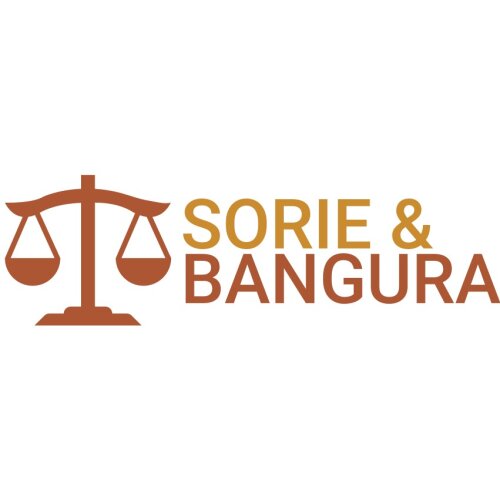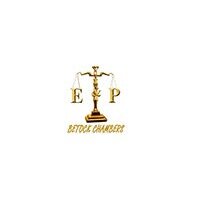Best Restructuring & Insolvency Lawyers in Sierra Leone
Share your needs with us, get contacted by law firms.
Free. Takes 2 min.
Or refine your search by selecting a city:
List of the best lawyers in Sierra Leone
About Restructuring & Insolvency Law in Sierra Leone
Restructuring and insolvency law in Sierra Leone deals with the legal processes that arise when individuals or companies face financial distress and are unable to meet their debt obligations. These laws provide a structure for managing and resolving insolvency, protecting creditors' rights, and potentially enabling struggling businesses to recover or restructure their operations. The goal of these laws is not only to provide fair treatment to all parties involved but also to maintain economic stability and protect jobs where possible. While relatively less developed compared to larger economies, Sierra Leone’s insolvency framework is evolving to align with international best practices and support the country’s business environment.
Why You May Need a Lawyer
Navigating restructuring and insolvency matters in Sierra Leone can be challenging due to the complexity of laws and the significant financial stakes involved. Some common situations where legal help may be needed include:
- When your business is unable to pay debts as they become due and you are considering restructuring options or voluntary liquidation.
- If you are a creditor seeking to recover money owed by an insolvent debtor.
- When negotiations with lenders or creditors break down or become contentious.
- If you are served with a winding-up petition against your business.
- When an individual is declared bankrupt and needs guidance on the legal process and its consequences.
- If you are considering purchase of assets from a company in insolvency and want to understand the legal implications.
- When you suspect fraudulent transfers of assets prior to insolvency and need to challenge such transactions.
A lawyer experienced in restructuring and insolvency can offer guidance, represent your interests in negotiations and court proceedings, and help you comply with all relevant local laws and procedures.
Local Laws Overview
Sierra Leone’s legal framework for restructuring and insolvency is governed chiefly by the Companies Act 2009, the Bankruptcy Act, certain sections of the Insolvency Act, as well as court rules and related regulations. Key aspects include:
- Corporate Insolvency: The Companies Act provides procedures for voluntary and compulsory winding up of companies, including appointment of a liquidator to oversee asset distribution and debt settlement.
- Personal Bankruptcy: The Bankruptcy Act sets out the process for declaring an individual bankrupt, managing their estate, and distributing assets to creditors.
- Creditor Rights: Both secured and unsecured creditors have specified legal rights and remedies during insolvency proceedings.
- Asset Protection: The law provides mechanisms for challenging fraudulent preference or undervalue transactions that occur before formal insolvency.
- Rehabilitation and Restructuring: In some cases, companies may enter into arrangements or compromise agreements with creditors under court supervision to avoid liquidation.
- Cross-border Issues: While Sierra Leone’s insolvency law is primarily domestic in focus, there are limited provisions for recognizing foreign insolvency proceedings or for dealing with assets and creditors abroad.
Frequently Asked Questions
What is insolvency in Sierra Leone?
Insolvency refers to a situation where an individual or business is unable to pay debts as they fall due. It may result in court-supervised liquidation or bankruptcy proceedings.
What is the difference between restructuring and insolvency?
Restructuring involves reorganizing a company’s debts or operations to restore its financial health without liquidating assets, while insolvency is the formal process that occurs when a debtor cannot pay its obligations, often resulting in liquidation or bankruptcy.
Who can initiate insolvency proceedings in Sierra Leone?
Insolvency proceedings can be initiated by the debtor (voluntarily) or by creditors (involuntarily) through an application to the courts.
What happens to employees during insolvency?
During insolvency, employees may be entitled to priority payment of certain outstanding wages and benefits after secured creditors have been paid. However, this depends on the available assets and priority set by law.
Are directors personally liable for company debts?
In general, directors are not personally liable for the debts of the company, unless there is evidence of fraud, wrongful trading, or breach of fiduciary duties.
How are assets distributed in insolvency?
Assets are typically distributed according to a statutory order of priority, starting with secured creditors, followed by preferential creditors (such as employees), unsecured creditors, and finally shareholders if any assets remain.
Can a business recover after entering insolvency?
In some cases, it is possible for a business to recover through restructuring or by entering into an arrangement with creditors, provided the court approves and creditors agree.
How long do insolvency proceedings take in Sierra Leone?
The duration varies depending on the complexity of the case, the nature of assets involved, and court schedules. Some cases can be resolved in a few months, while others may take several years.
Is it criminal to be insolvent in Sierra Leone?
Being unable to pay debts is not a crime, but fraudulent activities such as hiding assets from creditors, falsifying records, or preferential transfers can result in criminal liability.
How can I protect my interests as a creditor?
Creditors should seek legal advice promptly, file all necessary claims according to legal timelines, and where appropriate, participate in creditor meetings and court proceedings.
Additional Resources
If you need information or support relating to restructuring and insolvency in Sierra Leone, the following resources may be helpful:
- Ministry of Justice - provides official information on the country’s legal system and relevant forms.
- Office of the Official Receiver - responsible for administering insolvency and bankruptcy matters.
- Corporate Affairs Commission - holds records of registered companies, winding-up notices, and official documents.
- Sierra Leone Bar Association - maintains a directory of qualified legal professionals who can provide tailored advice.
- Insolvency practitioners and licensed liquidators - professionals experienced in handling reorganizations and asset distribution.
Next Steps
If you are facing financial distress or need advice on restructuring and insolvency, consider the following steps:
- Gather all relevant documents, including financial statements, debt agreements, and correspondence from creditors.
- Contact a qualified lawyer or insolvency practitioner who is experienced in Sierra Leone’s laws and procedures.
- Discuss your situation in detail and request a clear strategy based on your unique circumstances.
- Act promptly, as delays can limit your options and potentially worsen the outcome.
- Stay informed about your rights and obligations throughout the process by seeking regular updates from your legal adviser.
Dealing with restructuring and insolvency issues can be daunting, but with the right legal support, you can make informed decisions and protect your interests effectively.
Lawzana helps you find the best lawyers and law firms in Sierra Leone through a curated and pre-screened list of qualified legal professionals. Our platform offers rankings and detailed profiles of attorneys and law firms, allowing you to compare based on practice areas, including Restructuring & Insolvency, experience, and client feedback.
Each profile includes a description of the firm's areas of practice, client reviews, team members and partners, year of establishment, spoken languages, office locations, contact information, social media presence, and any published articles or resources. Most firms on our platform speak English and are experienced in both local and international legal matters.
Get a quote from top-rated law firms in Sierra Leone — quickly, securely, and without unnecessary hassle.
Disclaimer:
The information provided on this page is for general informational purposes only and does not constitute legal advice. While we strive to ensure the accuracy and relevance of the content, legal information may change over time, and interpretations of the law can vary. You should always consult with a qualified legal professional for advice specific to your situation.
We disclaim all liability for actions taken or not taken based on the content of this page. If you believe any information is incorrect or outdated, please contact us, and we will review and update it where appropriate.
Browse restructuring & insolvency law firms by city in Sierra Leone
Refine your search by selecting a city.












